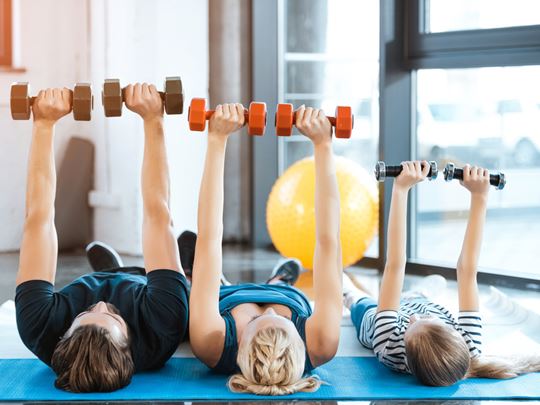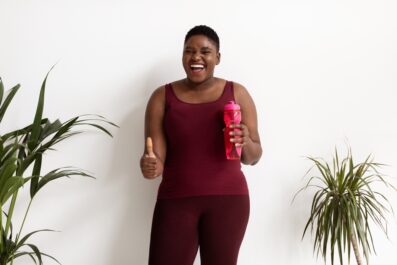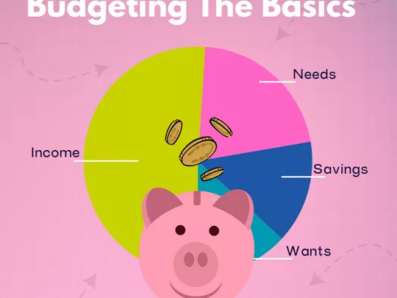Here is our quick guide to staying healthy
A Balanced Diet
Eating is an important part of everyone’s lives and should never feel restrictive. It’s important that you have a good balance of nutrients whilst still enjoying the food that you love.
If you are eating a balanced diet and eating the right amount of food for your needs, you’ll have plenty of energy, balanced moods, and a healthy immune system.
Take a look at just some of the ways you can ensure your body is getting the nourishment it needs…

Avoid too much salt
We need a little salt in our diets, but the average intake of salt per person in the UK is about 10g per day (roughly two teaspoons), which is far too much. Try to avoid ready-made foods, and minimise the amount of salt you add to your cooking. Use alternatives to add flavour to your dishes such as lo salt (alternative salt with potassium), herbs, spices, or lemon juice.
Eat plenty of fruit and vegetables
There is good evidence that diets rich in fruit and vegetables reduce the risk of developing chronic diseases (such as coronary heart disease and some cancers) in later life. Most people would benefit from increasing the amount of fruit and vegetables and also make good snack foods!
A balanced diet should contain at least five different portions of fruit and vegetables a day. It is best to eat a wide variety so you can get a range of vitamins and minerals. Taking a multivitamin and mineral supplement is also a good idea, as modern farming methods strip the soil of nutrients, which means fewer nutrients in the fruit and vegetables you eat.
Avoid eating too many foods that contain a lot of fat
Some fats are essential for your body to stay healthy. Monounsaturated fats and essential fatty acids from olive oil, grapeseed oil, sunflower oil, avocados, nuts, and seeds are an important part of a balanced diet.
However many people eat far more fat than they need, and a diet high in saturated fat( meat and dairy products) can increase the risk of heart disease. Fat is also high in calories, and eating too much could leave you overweight. Try not to fry food too often, as heating oil changes its chemical composition and creates free radicals which are bad for your health.
Visible fat like the fat on meats or in fat spreads is easy to spot but there is also a lot of fat hidden in food like pies, pastries, cakes, biscuits, and chocolate. Checking the label and choosing lower fat versions whenever possible is a good way to reduce fat in the diet.
Drink plenty of water
As well as eating the right foods, you need to make sure that you drink enough fluid throughout the day. The human body is made up of 70% water, and this water needs to be replaced regularly.
If you don’t drink enough you’ll become dehydrated which could mean headaches muscle pains and other health problems. It’s important to keep well hydrated.
But what should you drink? The answer is WATER
Soft drinks, tea, and coffee may taste better, but as they cause an increase in urination they can end up making you dehydrated. You don’t need to stop the cups of teas or coffee but you should drink 7 – 10 average-sized glasses of water a day to keep hydrated. Also, water does not have any calories or artificial sweeteners so it is by far the healthiest option.
Keeping Active
Along with eating well, regular exercise is one of the best things you can do for yourself. Not only is it good for your physical health, but exercise also promotes an overall sense of well-being; reducing stress, anxiety, and depression.
Here’s a handy checklist to get you started:
- If you haven’t exercised for a while, start gently. If you have any health concerns, talk to your GP about what would work best for you
- You don’t need a lot of money or equipment to stay fit just 30 minutes of brisk walking a day will keep you healthy
- If you have trouble getting motivated try exercising with friends.
- Add variety – try a new sport. Join a yoga or Pilates class, try a martial art, or take a dance class it all helps keep you active
- Use your legs more during the day. Take the stairs instead of lifts or escalators or if you commute every day to work or school try walking part of the way

Join a gym
Gyms can seem quite scary and intimidating places at times, full of super fit people burning calories or pumping weights! But in reality, most gyms are full of everyday people of all shapes, sizes, and ages who are looking to get fit and have fun.
Below are some tips on what to look for when joining a gym.
Top Tips:
- Make it work for you – make sure it’s close enough and cheap enough so you’ll go regularly and make sure they have classes that you are interested in.
- Be nosy – ask to have a look around. Find out what the inside looks like what equipment they have, how many staff they have, and what classes are on offer.
- Put it to the test – most gyms offer free introductory classes so you can check them out before committing to fees.
Not sure a gym is right for you? Why not ask your foster parent about the free resources on the exchange?
Our wellbeing centre has hundreds of exercise videos that you could do from the comfort of your own home and get the whole household involved!
Try a new activity
Start by thinking about which sports and activities you enjoy the most and are best suited to.
Don’t expect to be the next Wayne Rooney instead see it as a chance to learn new skills, get fit and meet different people.
Your local authority may run youth clubs or drop-in centres where you can catch up with your friends and meet different people. They may also offer other activities like drama and art classes.
If you’ve got some spare time, you may want to volunteer to work for a youth project in your area. You’ll get all the training you need and it looks great on your CV.
Top Tips
- Try to push yourself out of your comfort zone. Often it’s the case we don’t want to try new things out of fear of the unknown. Anything can feel odd the first time we do it, but the more people you meet and new things you try, the more comfortable you’ll start to feel.
- Persevere. It’s very rare for someone to be good at something straight away. When learning a new skill or trying out a new hobby it can take time to build your confidence, but just remember it’s ok not to feel like a pro the first time you start!
You may also like…
Handbooks & Guides?
Are handy handbooks are designed with you in mind, full of helpful information for both you and your foster family.
Independents
Are you about to be independent or have you already left? Find support and information here and remember to stay in touch.
Have your say
We are here for you, have your say on topics you want to read, give us your feedback or contribute to your foster parent’s review.
Kids of Carers
We offer help and support to birth children and young people whose parents are foster carers.





